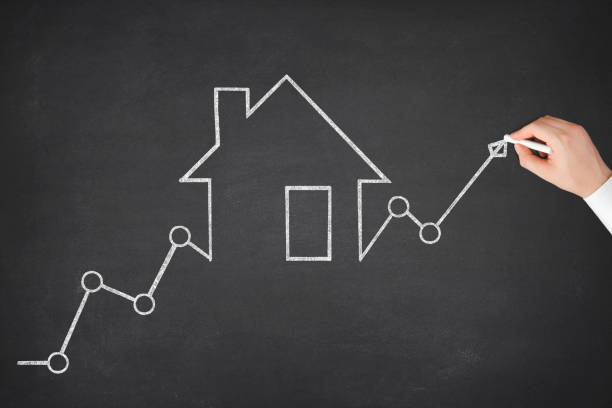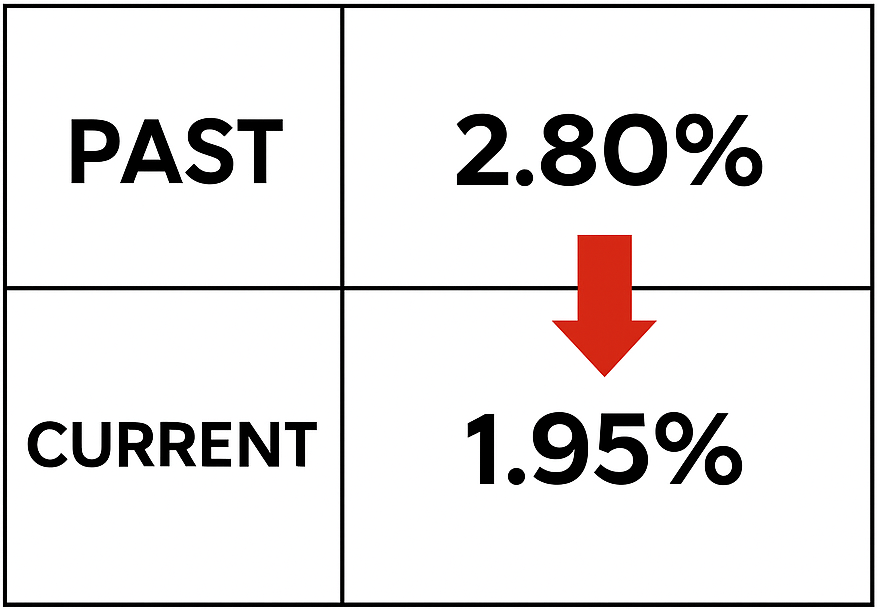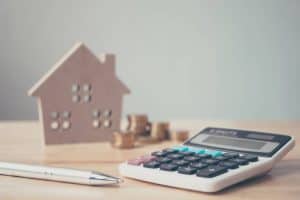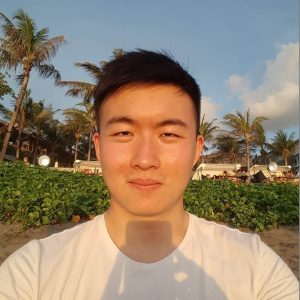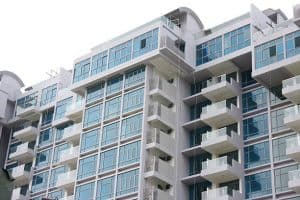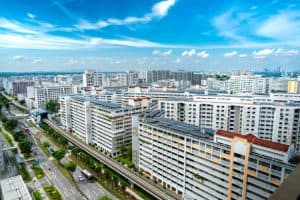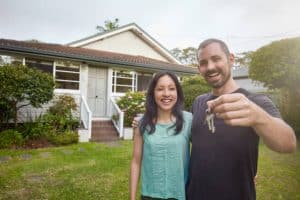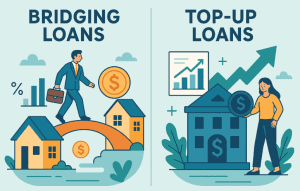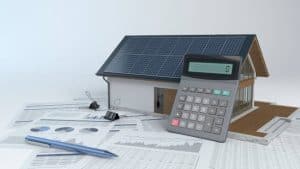Let’s be real—buying a home in Singapore isn’t just about finding the perfect place.
It’s also about navigating a maze of rules, especially those dreaded cooling measures. You’ve probably heard of them—ABSD, LTV, TDSR… all those finance-y terms that somehow make buying feel a lot more stressful than it should.
Whether you’re a first-time HDB buyer or thinking about a second property, these rules will affect your budget and timeline. And in 2025? There are a few new ones to take note of.
Don’t worry—we’ll break it all down in plain English. What’s changed, who’s affected, and how to make smarter moves in today’s market. Let’s go!
What Are Property Cooling Measures in Singapore
In Singapore, property cooling measures are government policies designed to control rising home prices, discourage speculation, and ensure housing remains affordable.
If you’re planning to buy a home—especially a second property or a condo—these rules will likely affect your budget, loan eligibility, and stamp duties.
Let’s go through the 3 most important cooling measures in 2025:
What is Additional Buyer’s Stamp Duty (ABSD) and who it affects
ABSD is an extra tax you pay on top of Buyer’s Stamp Duty when buying a residential property.
Current ABSD rates in 2025:
Singapore Citizens:
- 0% on 1st property
- 20% on 2nd, 30% on 3rd+
PRs:
- 5% on 1st, 30% on 2nd
Foreigners:
- 60% flat rate on any property
Use our Buyer’s Stamp Duty calculator to check how much you might be paying upfront.
Expert tip: If you’re planning to avoid ABSD on a second home, speak to a mortgage broker in Singapore about decoupling or restructuring options.
What is Seller’s Stamp Duty (SSD) and how it applies
SSD is charged when you sell a private property within 3 years of buying it.
Seller’s Stamp Duty (SSD) Rates for Private Property in Singapore
| How Long You’ve Owned the Property | SSD Rate |
|---|---|
| Less than 1 year | 12% |
| 1 to 2 years | 8% |
| 2 to 3 years | 4% |
| More than 3 years | No SSD |
Pro tip: Planning to sell before 3 years is up? Always factor in SSD during your property loan interest rate calculations—it can eat into your profits fast.
What is the Total Debt Servicing Ratio (TDSR) and why it matters
TDSR limits how much of your income can go towards loan repayments—including home, car, student, and credit card loans.
- TDSR cap: 55% of gross monthly income
- Applies to all housing loans in Singapore, both HDB and private
- Lenders will also stress test you using a higher interest rate, not the actual one
Personal tip: Before house hunting, check your numbers with this mortgage loan repayment calculator. It gives you a clearer idea of your budget based on today’s mortgage interest rate in Singapore.
What Are the Current HDB Cooling Measures
If you’re buying an HDB flat in Singapore—especially as a private property owner or upgrader—there are now stricter rules in place that directly affect when, how much, and what you can buy.
These are the key HDB cooling measures in 2025 that homebuyers need to understand:
What is the 15-month wait-out period for private homeowners
As of late 2022, private property owners who sell their home must now wait 15 months before they can buy a non-subsidised HDB resale flat.
This applies to:
- Former private homeowners aged below 55
- Buying a resale flat on the open market (not BTO)
- Even if you’re a Singapore Citizen
Who’s exempted:
- Seniors aged 55+ buying a 4-room or smaller flat
- Those applying for new BTOs or executive condos (with conditions)
Tip: If you’ve just sold a private home, speak to a mortgage broker in Singapore to plan your transition and assess your eligibility for HDB vs private options.
How LTV limits differ for HDB versus bank loans
Loan-to-Value (LTV) limits control how much of your flat’s value you can borrow, and it differs depending on whether you take a HDB loan or a bank loan.
HDB Loan vs Bank Loan LTV Limits and Minimum Downpayment
| Loan Type | Max LTV (2025) | Min Downpayment |
|---|---|---|
| HDB Loan | 80% | 20% (CPF/cash) |
| Bank Loan | 75% | 25% (5% cash min) |
So yes—bank loans have stricter LTV limits, meaning you need more upfront cash.
Planning tip: Not sure which to choose? Compare your options on our HDB home loan and private property loan pages to see what fits your finances best.
How income ceilings and MSR affect HDB flat financing
Unlike private properties, HDB loans come with income ceilings and the Mortgage Servicing Ratio (MSR) rule:
- Income ceiling (for new flats):
- $14,000 for families
- $21,000 for extended families
- $7,000 for singles (2-room Flexi)
- $14,000 for families
- MSR: Capped at 30% of your gross monthly income
(This means your monthly mortgage repayment cannot exceed this limit.)
Expert tip: Your MSR and income ceiling can drastically reduce your loan amount—even if you qualify in theory. Use our mortgage loan repayment calculator to see what you can realistically afford before applying.
Latest 2025 Updates to Property Cooling Measures

2025 hasn’t brought a huge wave of changes, but a few important updates to cooling measures in Singapore are already making it harder for certain groups to buy property. Here’s what you need to know:
What changed in ABSD rates for citizens, PRs, and foreigners
The most talked-about update this year? A fresh round of ABSD rate hikes—especially for foreigners and multiple-property owners.
2025 ABSD Rates in Singapore for Different Buyer Types
| Buyer Type | Previous ABSD | 2025 ABSD (Updated) |
|---|---|---|
| Singapore Citizens (2nd home) | 17% | 20% |
| Singapore PRs (1st home) | 5% | 5% (unchanged) |
| PRs (2nd home) | 25% | 30% |
| Foreigners | 30% | 60% |
| Entities (companies, trusts) | 35% | 65% |
Expert tip: If you’re thinking of upgrading or buying another flat, speak to a mortgage broker in Singapore to explore ABSD-saving strategies like decoupling or right-sizing loans.
Need help calculating your tax? Try our Buyer Stamp Duty calculator.
What are the new loan stress test requirements
With interest rates still high in 2025, banks are applying stricter loan stress tests when assessing how much you can borrow.
- Stress test rate: Banks now assume 4%–4.5% when calculating loan affordability
- TDSR limit remains at 55%, but fewer buyers qualify at this new rate
- You may qualify for a lower home loan than before, even with the same income
Personal tip: Always check your budget with a mortgage loan repayment calculator before getting your hopes up—it’s better to know your limits upfront.
What other new rules are impacting homebuyers in 2025
Here’s a quick look at other 2025 policy changes that impact HDB and private buyers alike:
- More strict enforcement of the 15-month wait-out rule
- HDB loan LTV limit cut from 85% → now 80%
- Tighter checks on CPF usage, COV payments, and income documents
- Cash-over-valuation buffer restrictions for resale flats
These new rates seriously impact affordability. If you’re planning to buy another property, get guidance from a mortgage in Singapore expert to explore strategies like decoupling or structuring your purchase smartly.
How Cooling Measures Impact Your Home Loan and Budget
Singapore’s cooling measures don’t just impact property prices—they affect your borrowing power, cash flow, and loan eligibility. Whether you’re a first-time buyer or planning a second property, here’s how the rules shape your home financing.
How cooling measures reduce your maximum loan amount
With tighter regulations in place, buyers often qualify for smaller mortgage loans than expected—even if their income hasn’t changed.
2025 Housing Loan Limits and Stress Test Criteria in Singapore
| Loan Factor | Current Rule (2025) |
|---|---|
| LTV (Bank Loan) | Max 75%, min 5% cash downpayment |
| LTV (HDB Loan) | Max 80%, no cash minimum |
| TDSR Limit | Capped at 55% of gross monthly income |
| Stress Test Interest | Assumed at 4%–4.5% for bank loan calculations |
I’ve seen clients get caught off guard when the loan amount they qualify for is much lower than they expected—just because of how banks now calculate things. Always check early and plan conservatively—it’s better to be pleasantly surprised than stretched too thin later.
How much more upfront cash or CPF you need today

Higher home prices and stricter LTV limits mean buyers now need more cash or CPF on hand upfront.
Minimum Downpayment Requirements for Home Loans in Singapore
| Loan Type | Min Downpayment | Cash Portion |
|---|---|---|
| HDB Loan | 20% (can be fully CPF) | $0 |
| Bank Loan | 25% (min 5% must be cash) | 5% |
Don’t overlook extras like stamp duty and legal fees. If you’re not sure how much to set aside, a mortgage broker in Singapore can walk you through a detailed budget.
How your eligibility is affected as a second-time or joint buyer
If you’re buying your second property or applying as a couple, cooling measures could lower your chances of getting a big enough loan.
Here’s why:
- ABSD kicks in the moment you own one property
- Combined income is used for TDSR/MSR—but so are your debts
- If one applicant is much older, your loan tenure may be reduced
Smart move: If you’re buying as a couple, sometimes it’s better to have just one name on the title. That can reduce ABSD and preserve eligibility. Always check with a qualified mortgage consultant first.
Who Is Most Affected by the Current Cooling Measures
Singapore’s property cooling measures don’t hit everyone equally. Depending on your profile—first-time buyer, upgrader, investor, or foreigner—you’ll feel the pressure differently. Here’s who’s losing out (and who’s not) in 2025:
First-time buyers versus upgraders — who gains, who loses
First-time homebuyers generally benefit the most from Singapore’s current rules. Why?
They enjoy:
- No ABSD on their first property
- Full access to CPF housing grants
- Lower income requirements for HDB loan eligibility
Upgraders, however, face a tougher road.
They deal with:
- ABSD on their next property (20%–30%)
- Higher cash/CPF downpayment due to stricter LTV limits
- Limited loan eligibility if they still own their first home
If you’re upgrading: Timing matters. Consider selling your existing home first to reset your ABSD and TDSR standing before buying again.
Property investors and foreign buyers under pressure
No group feels the squeeze more than investors and foreigners, especially with recent ABSD hikes.
ABSD and Loan Restrictions for Foreign Buyers and Investors in Singapore
| Group | Key Cooling Measures |
|---|---|
| Local Investors | 20–30% ABSD on 2nd/3rd property, limited loan tenure |
| PR Buyers | 5–30% ABSD even on 1st property, no grants, no HDB |
| Foreign Buyers | 60% ABSD, no access to HDB or CPF schemes |
Opinion: These rules clearly prioritise genuine homeownership. If you’re investing, make sure the math works out over the long term.
Couples and families with joint ownership plans

Joint buyers—especially married couples—can benefit from combined income under TDSR rules. But there are trade-offs:
✅ Pros:
- May qualify for a larger home loan
- Easier to meet MSR for HDB financing
🚫 Cons:
- If one party already owns a property, ABSD still applies
- Loan tenure may be based on the older applicant’s age
- Selling later could involve decoupling costs or legal complexity
Pro tip: Some couples opt to buy under one name to save on ABSD and simplify future planning—but that decision depends on income split, credit history, and future goals.
How to Navigate Singapore’s Cooling Measures in 2025

With so many rules and restrictions in place, navigating Singapore’s property market today can feel overwhelming—but it doesn’t have to be. If you plan smart, it’s still possible to buy confidently, even in the middle of tighter cooling measures.
Should you buy now or wait for future policy changes
This is the question on everyone’s mind: “Is now the right time to buy?”
Here’s a quick breakdown of when it makes sense to buy now—and when you might want to wait.
Should You Buy Property in Singapore Now or Wait?
| Buy Now If… | Wait If… |
|---|---|
| You’re a first-time buyer with stable income | You need time to build cash/CPF reserves |
| You’ve already sold your current property (avoiding ABSD) | You’re still holding onto your first home |
| You qualify for grants or priority schemes | You expect future ABSD relief or market correction |
| You’ve locked in a good interest rate | You think interest rates or prices may drop further |
Personal take: No one can time the market perfectly. If your finances are solid and the right home comes up—don’t wait too long. The best time to buy is when you’re personally ready.
How to optimise affordability with grants and loan planning
Smart homebuyers don’t just look at price—they look at financing strategy. Here’s how to make your home more affordable without overstretching:
- Tap into CPF Housing Grants if eligible (especially for first-timers)
- Compare the best home loan rates in Singapore across banks
- Calculate your monthly instalments with a reliable mortgage loan repayment calculator
- Reassess whether a fixed or floating rate works better based on your long-term plans
Tip: Your grant eligibility and TDSR situation can drastically affect affordability. Planning your loan strategy in advance gives you negotiating power when you find the right unit.
When to speak to a mortgage advisor or broker for help
If you feel stuck—or just want peace of mind—now’s the time to get help.
Here’s how a mortgage broker in Singapore can support you:
- Help you compare home loan interest rates in Singapore
- Advise on refinancing vs restructuring to reduce monthly payments
- Explain ABSD and CPF usage in plain English
- Tailor your loan strategy based on your property type, income, and ownership goals
Final word: Even financially savvy buyers benefit from a second opinion. The property rules are complex—and one misstep can cost you thousands.
Final Thoughts: Making Sense of Singapore’s Cooling Measures

Singapore’s property cooling measures in 2025 may feel overwhelming at first—but once you understand how they work, you can make smarter, more confident decisions. Whether it’s managing your ABSD, calculating your loan limits, or planning around the 15-month wait-out period, knowledge really is your best tool.
And the truth is: the right time to buy isn’t about market timing—it’s about being financially ready and well-informed.
Need help navigating the maze?
Our team at Ace Mortgage is here to help you compare home loan rates in Singapore, understand your options, and secure the best deal—whether you’re buying your first flat or refinancing your second property.

